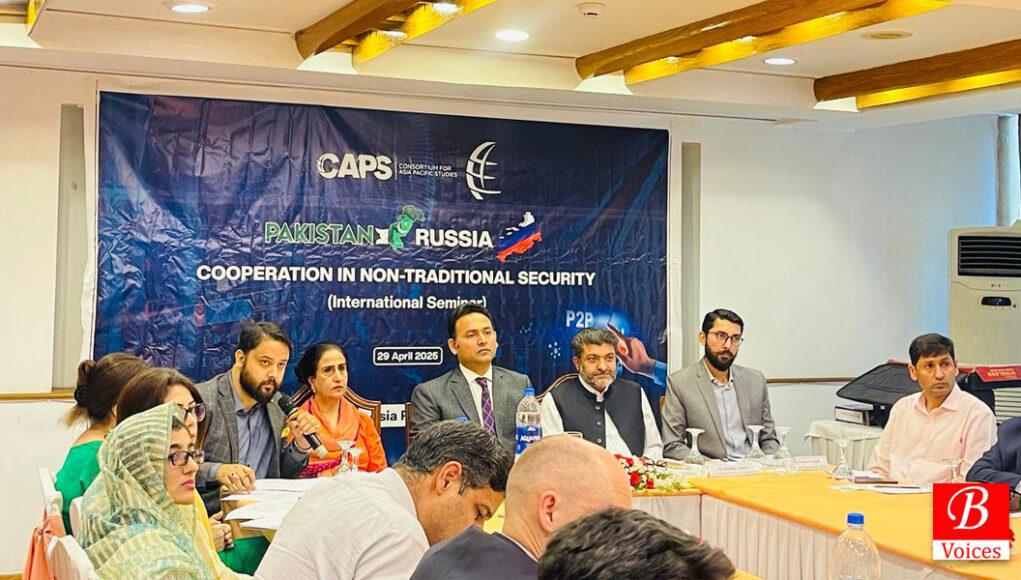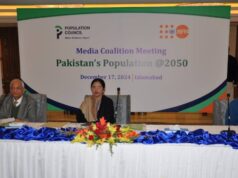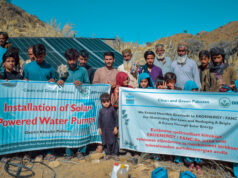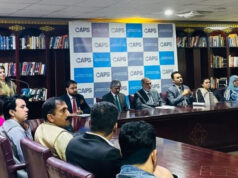Press Release
ISLAMABAD: As global alliances continue to shift in a multipolar world, Pakistan and Russia took a step forward in redefining their relationship by focusing on non-traditional security cooperation at a seminar hosted in Islamabad.
Organized by the Consortium for Asia-Pacific Studies (CAPS), the international seminar titled “Pakistan-Russia Cooperation in Non-Traditional Security” brought together leading voices from both countries, including academics, analysts, and diplomats. The seminar was chaired by CAPS President Dr. Khuram Iqbal.
A keynote address by Russian geopolitical expert Dr. Roksolana Zigon set the tone for the dialogue. Calling the unilateral suspension of the Indus Waters Treaty “unacceptable,” she criticized the Indian media for spreading exaggerated narratives. Dr. Zigon also called on Russia to revive its role as a peace broker in South Asia, similar to its historic involvement in the Tashkent Agreement.
She highlighted areas such as climate change, water security, and technological cooperation as key to building a stronger bilateral relationship. “Strategic partnerships must be matched with diplomatic responsibility,” she noted, urging both nations to craft a joint narrative that focuses on long-term sustainability rather than short-term fixes.
Expanding the conversation to cultural diplomacy, Dr. Ilsur from Kazan University emphasized the deep-rooted yet often overlooked cultural ties between Pakistan and Russia. “Cultural, political, and economic linkages are the foundation of meaningful cooperation,” he said, adding that the Soviet Union had historically acted as a bridge between Islamabad and New Delhi.
Dr. Shabbir Ahmed from the University of Peshawar spoke on emerging labour migration opportunities amid Russia’s evolving immigration policies. He argued that Pakistan and Russia are “natural partners,” especially as both shift their focus from traditional alliances to newer, multidimensional collaborations.
The economic potential of connectivity projects also featured prominently. Taimur Fahad from the Institute of Strategic Studies highlighted the importance of the International North-South Transport Corridor (INSTC) and praised the use of barter trade as a practical tool to sustain commerce amid sanctions and global economic tensions.
Meanwhile, Gleb Makarevich of the Russian Academy of Sciences discussed academic collaboration but pointed out persistent hurdles such as bureaucracy and limited public knowledge. “We need to build expertise and awareness on both sides,” he said, especially in language and cultural studies.
Ambassador Naela Chohan closed the event by emphasizing the need for Central Asian study centres to drive regional cooperation. “Initiatives like this one are essential to building long-term, people-centered cooperation,” she said.
The session, moderated by CAPS General Secretary Umair Pervez Khan, ended with a lively Q&A where participants called for easing visa restrictions and cutting red tape to allow genuine collaboration to flourish.
With shared challenges like climate change and regional instability looming large, the Islamabad seminar made it clear that for Pakistan and Russia, the future lies not just in strategic defense ties but in deeper academic, economic, and cultural cooperation.








